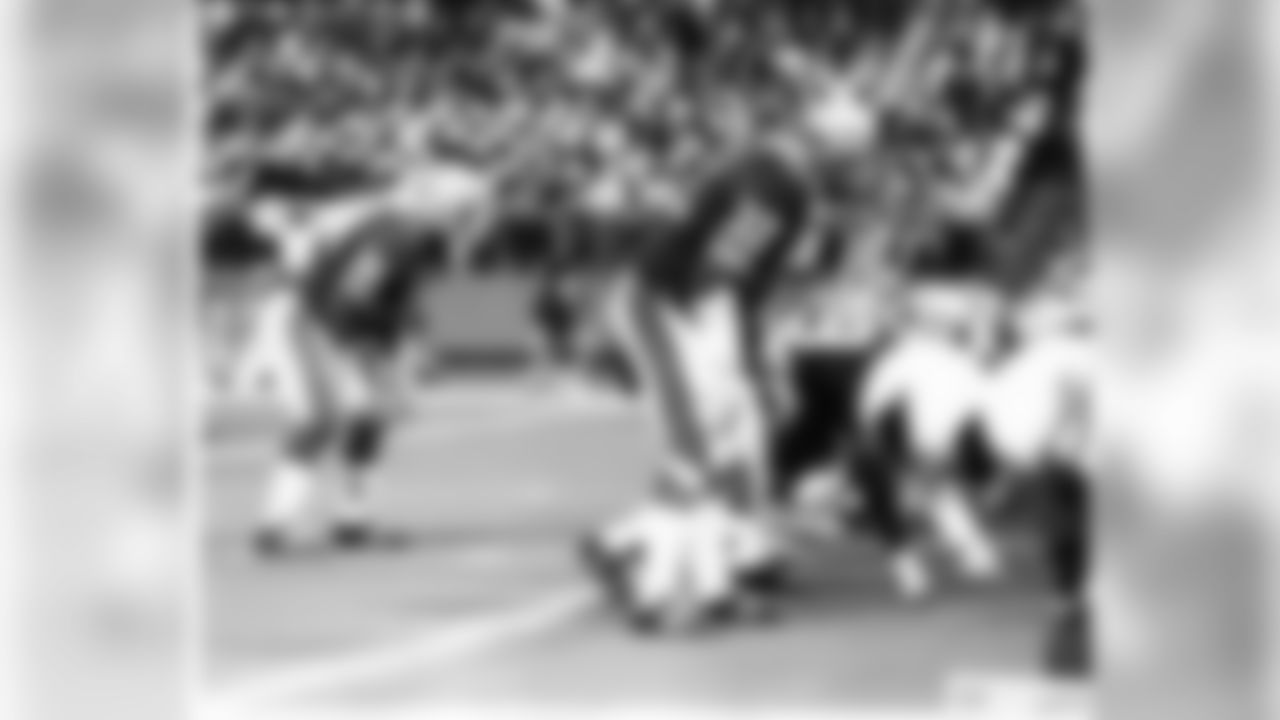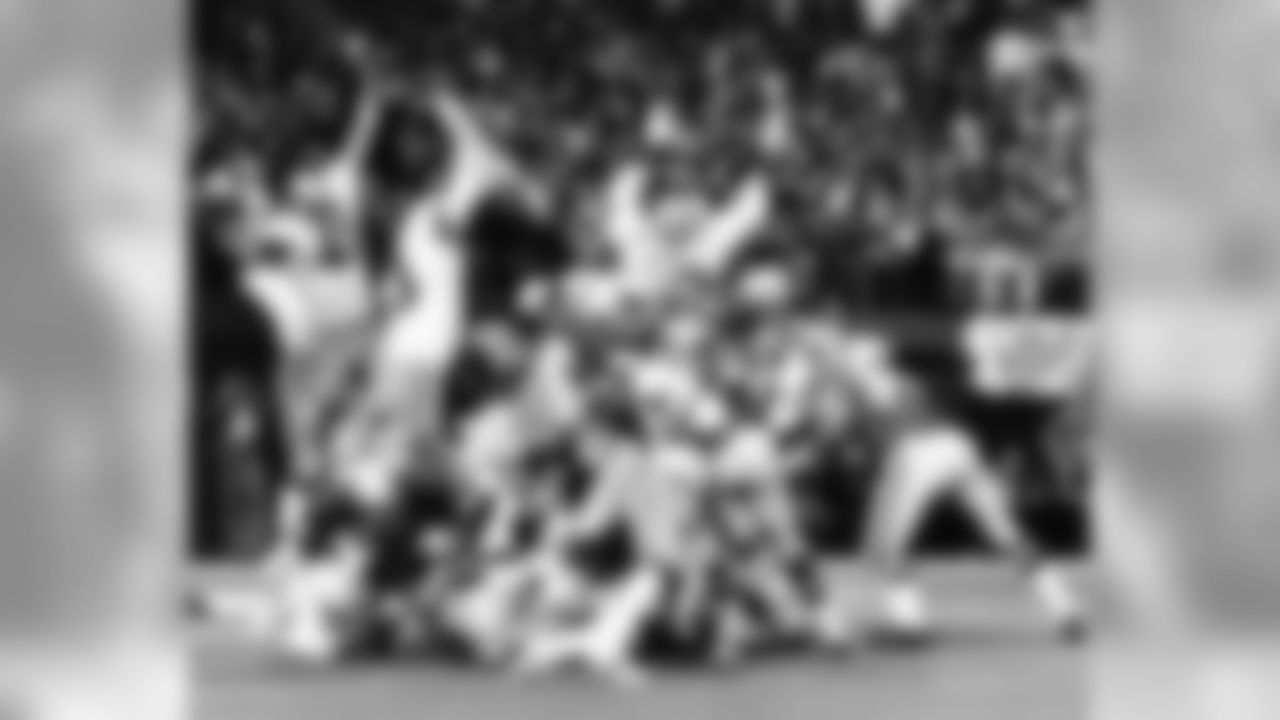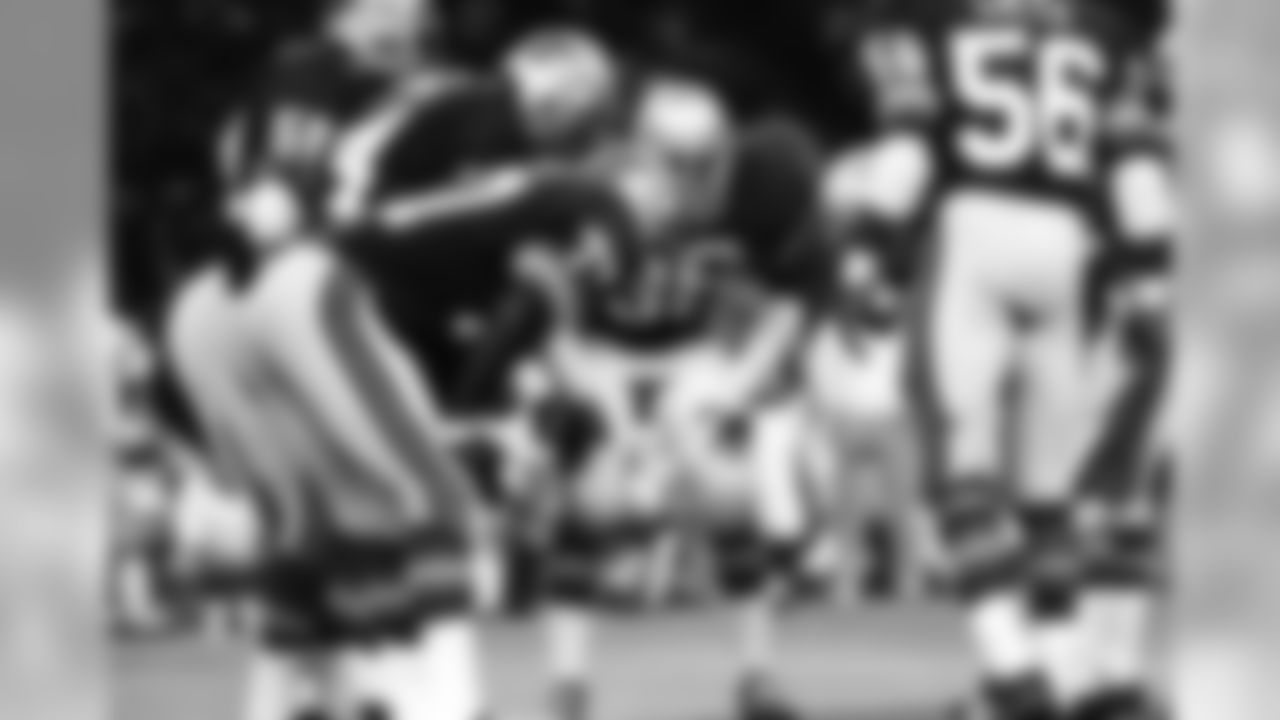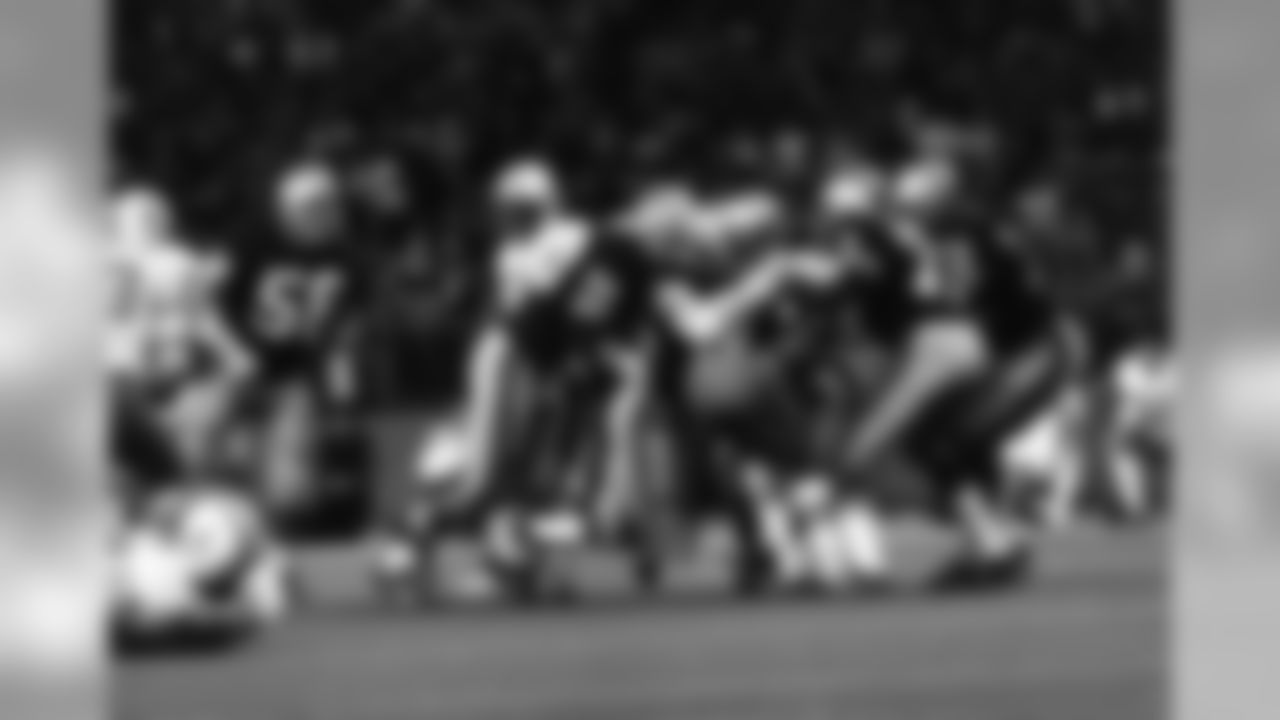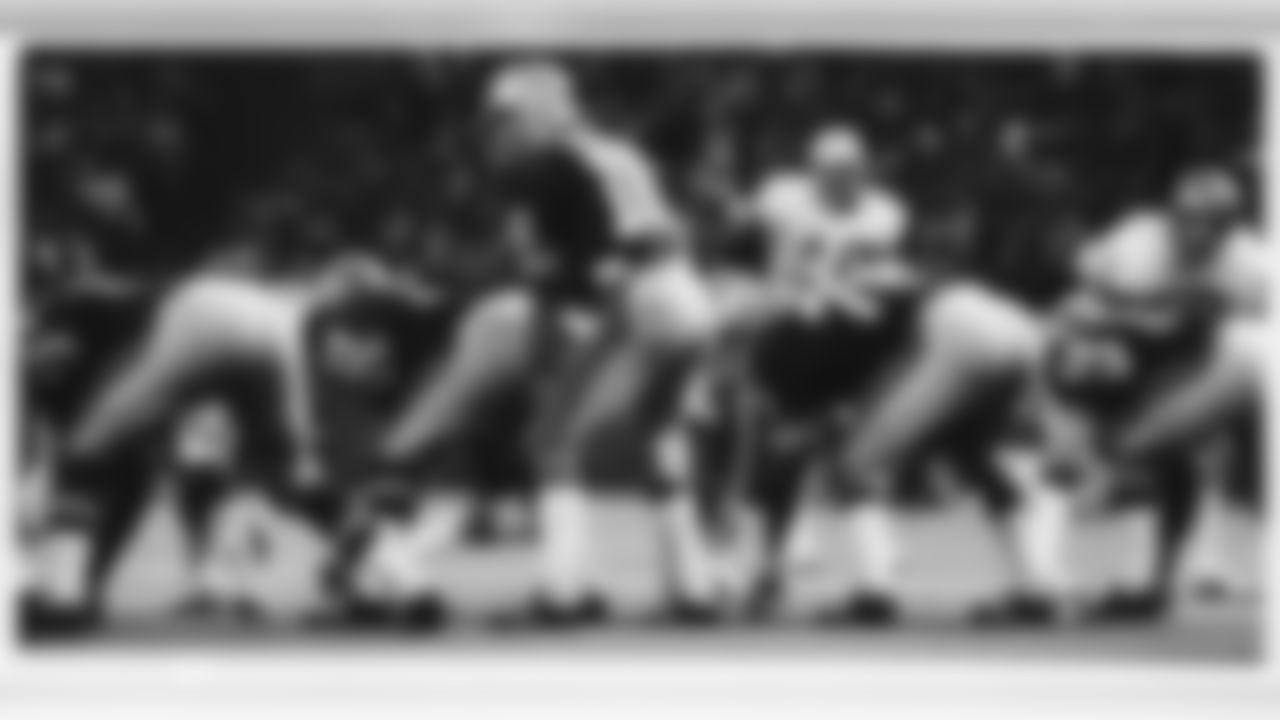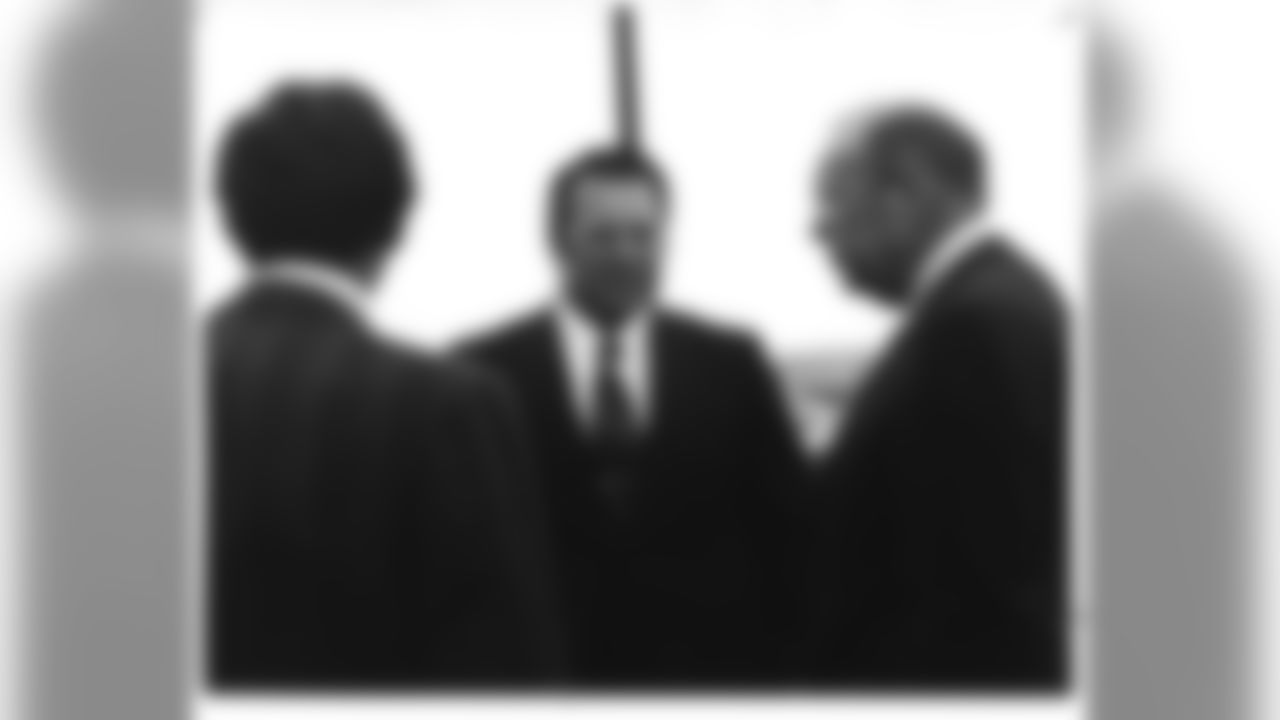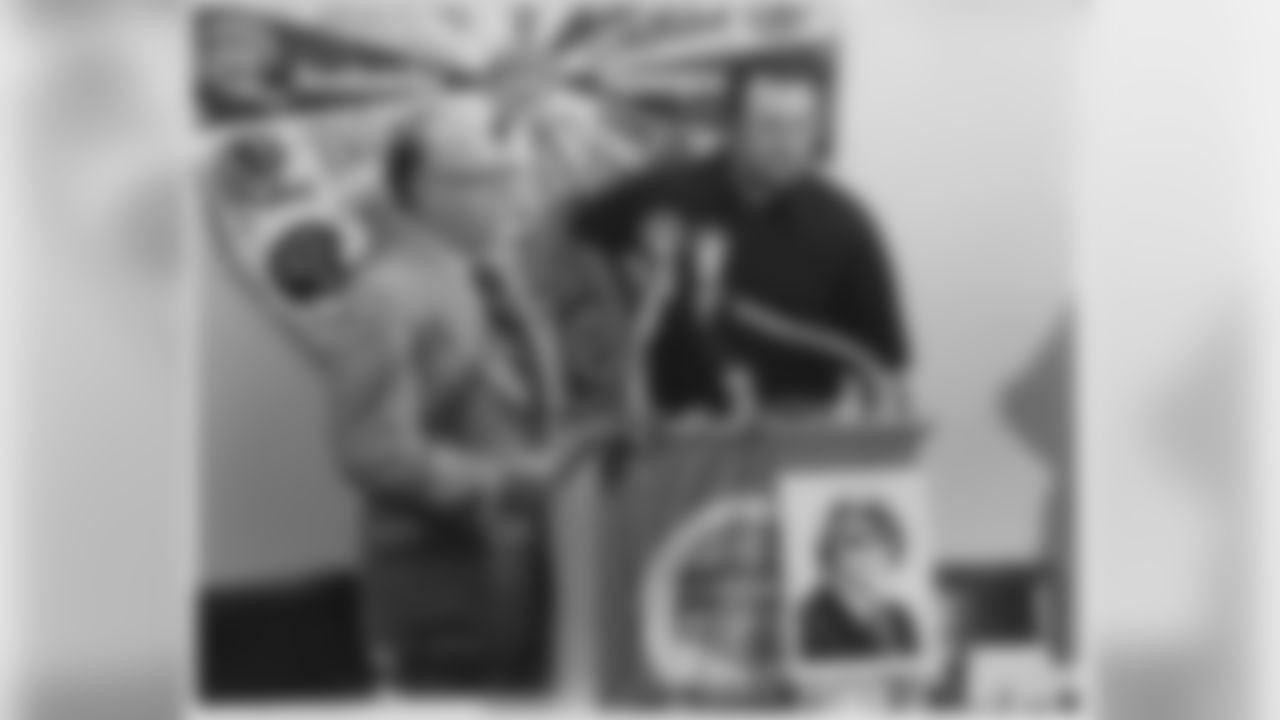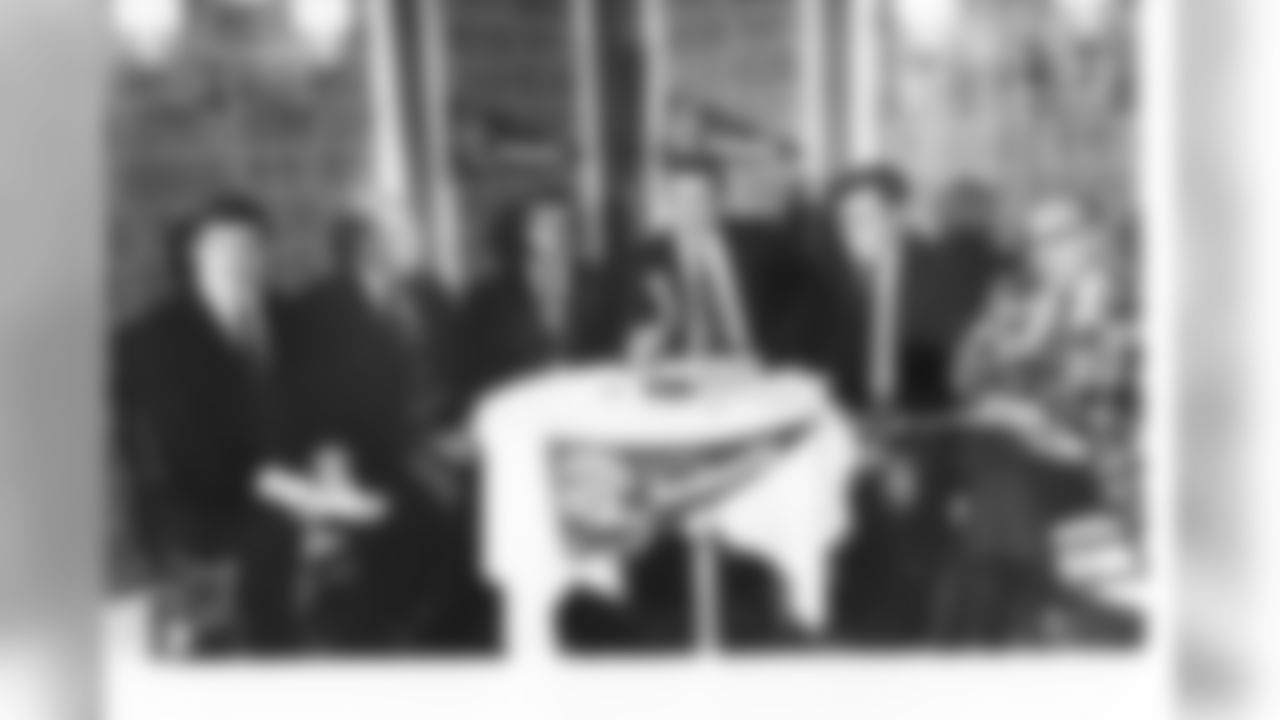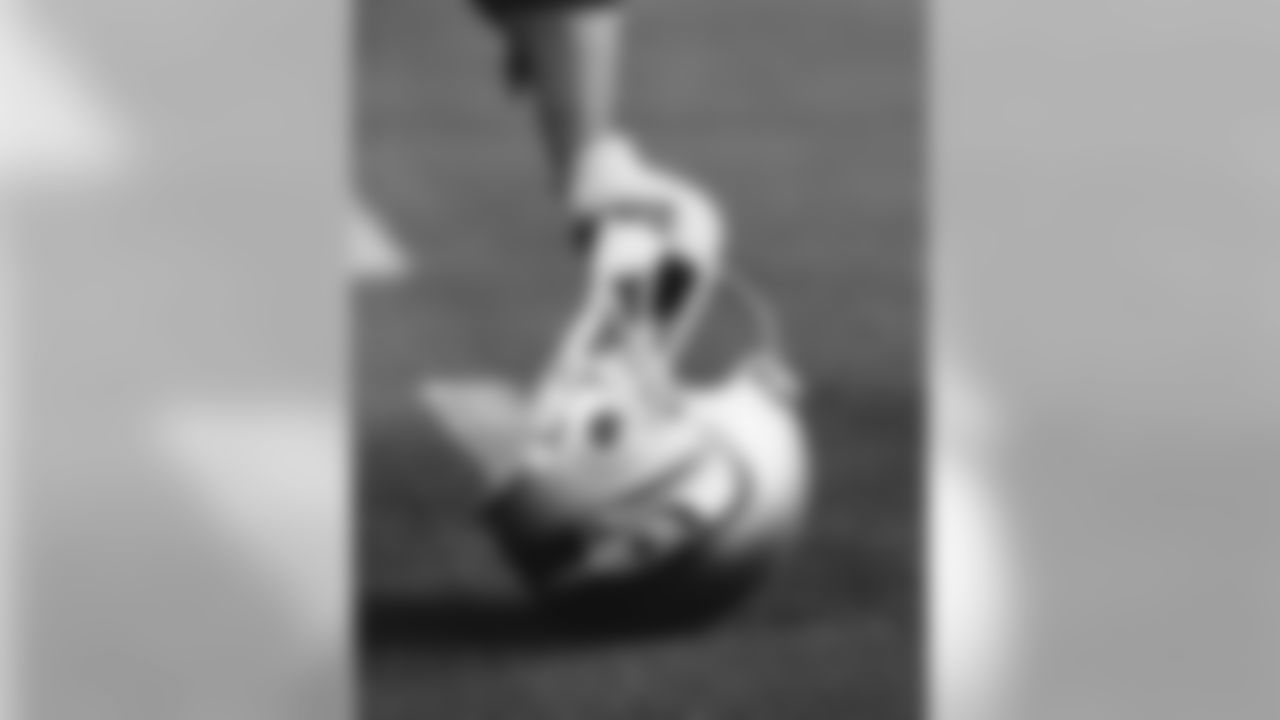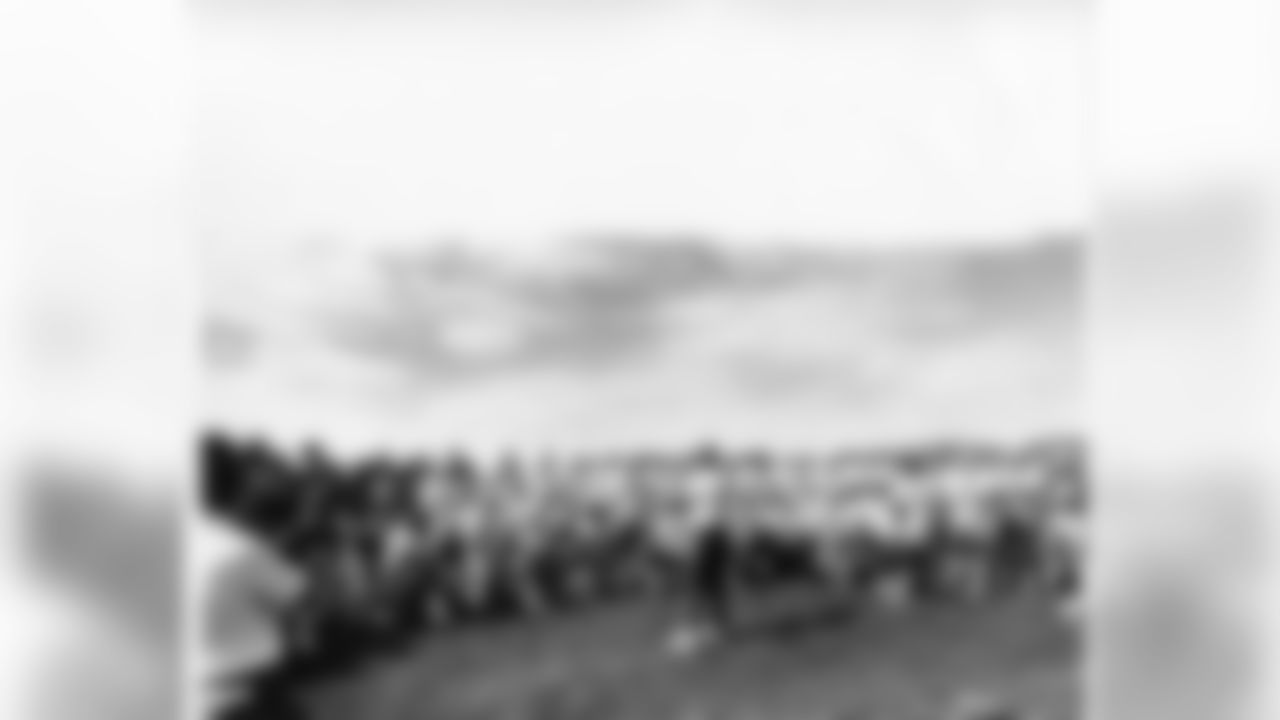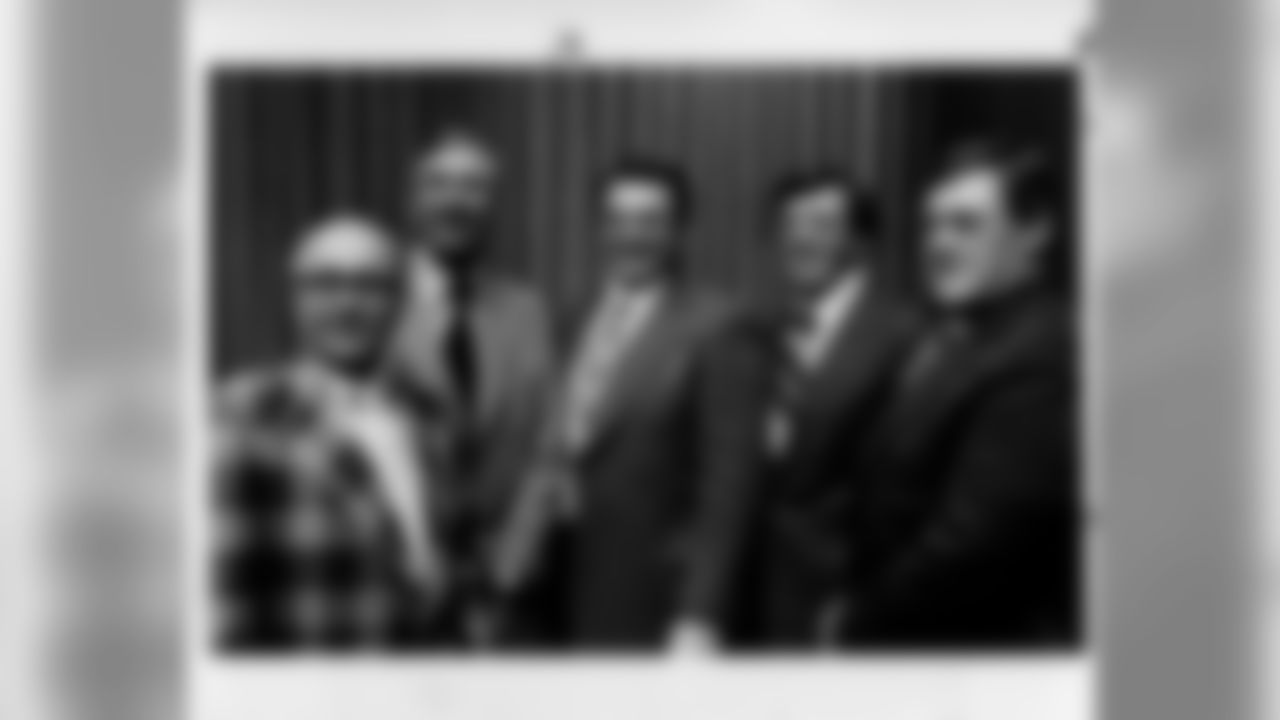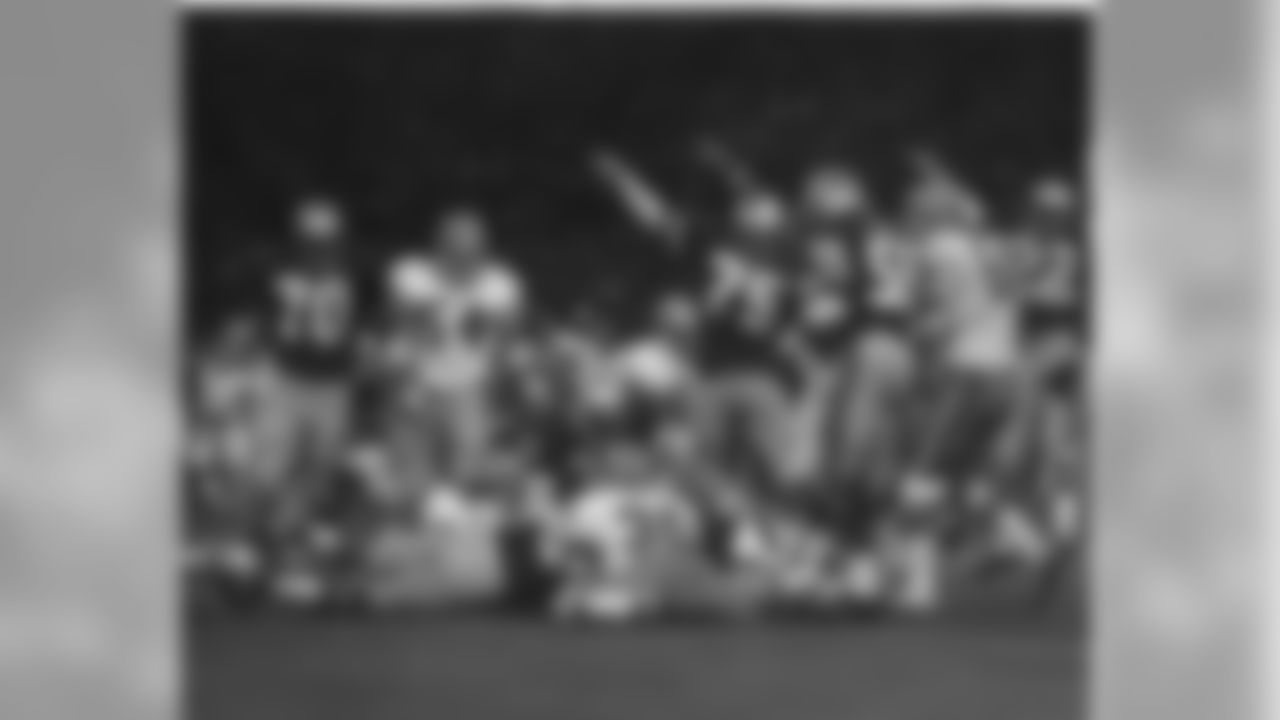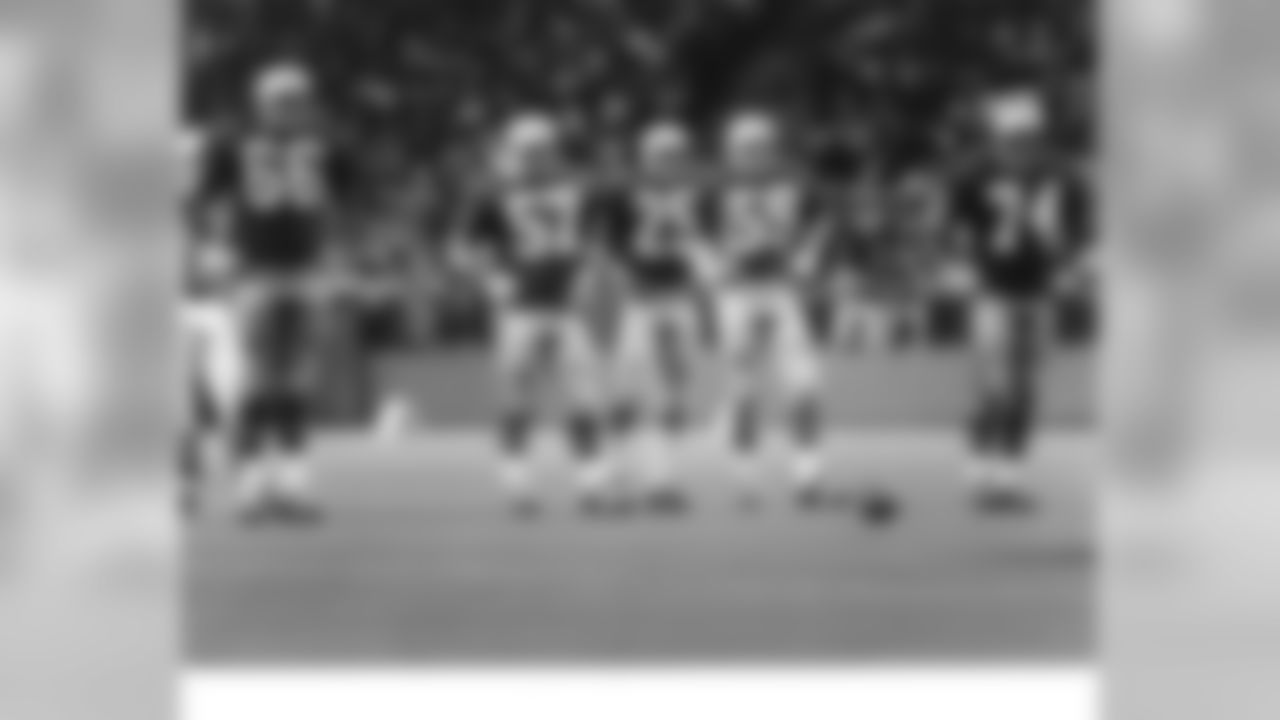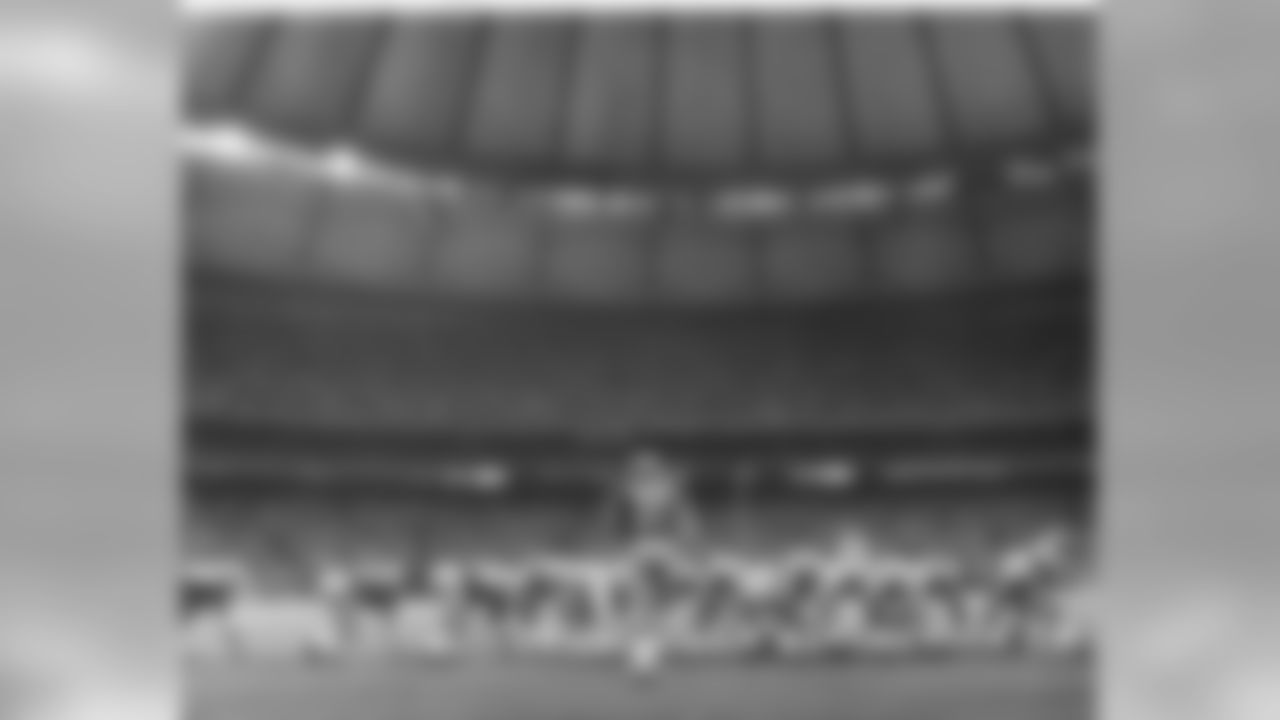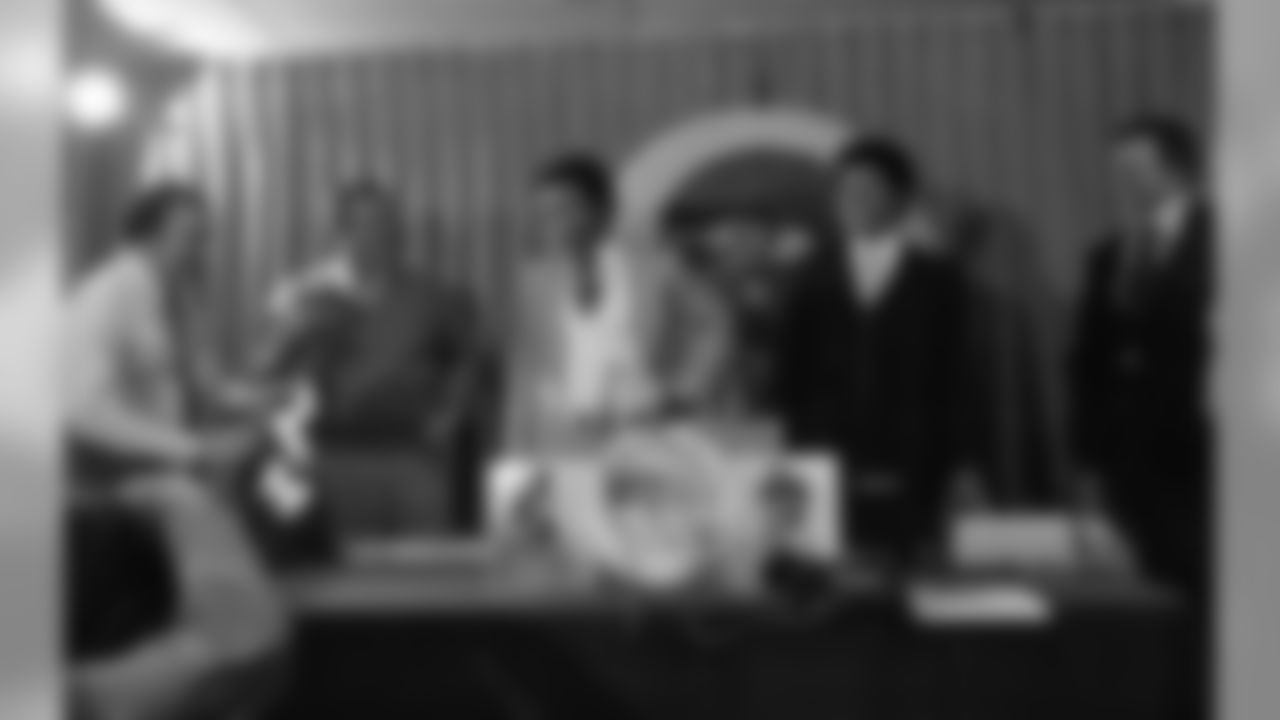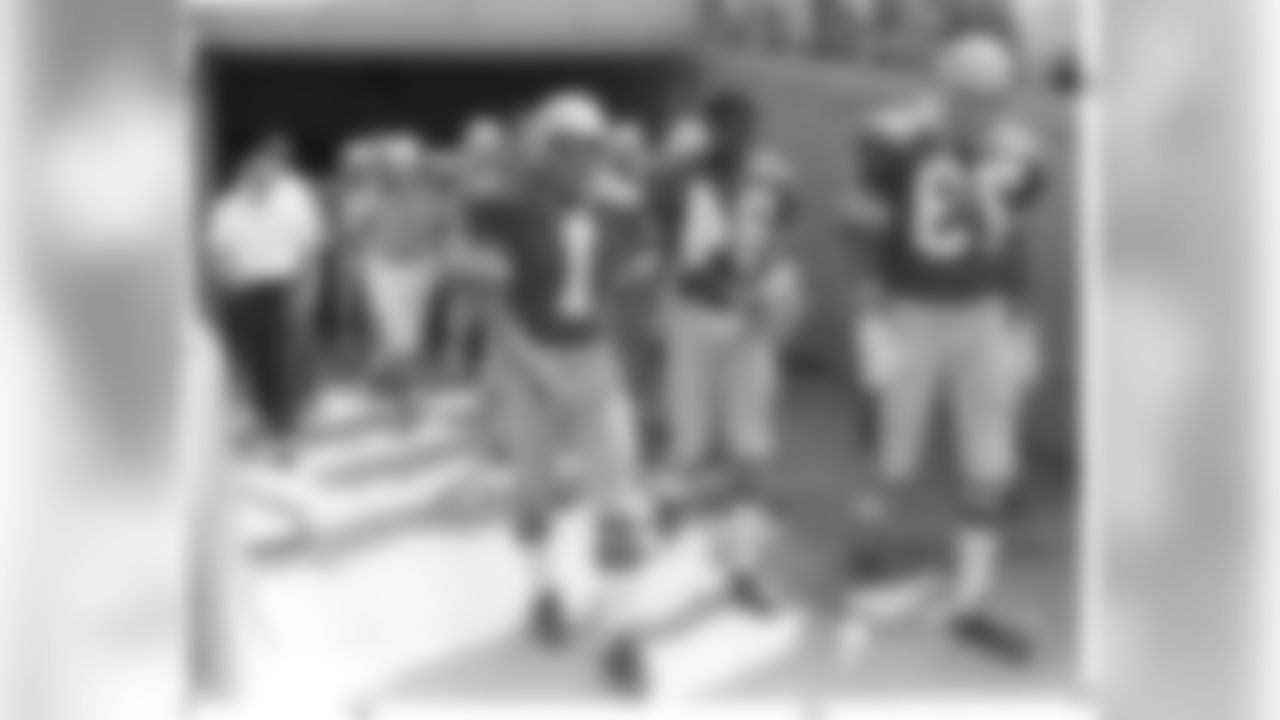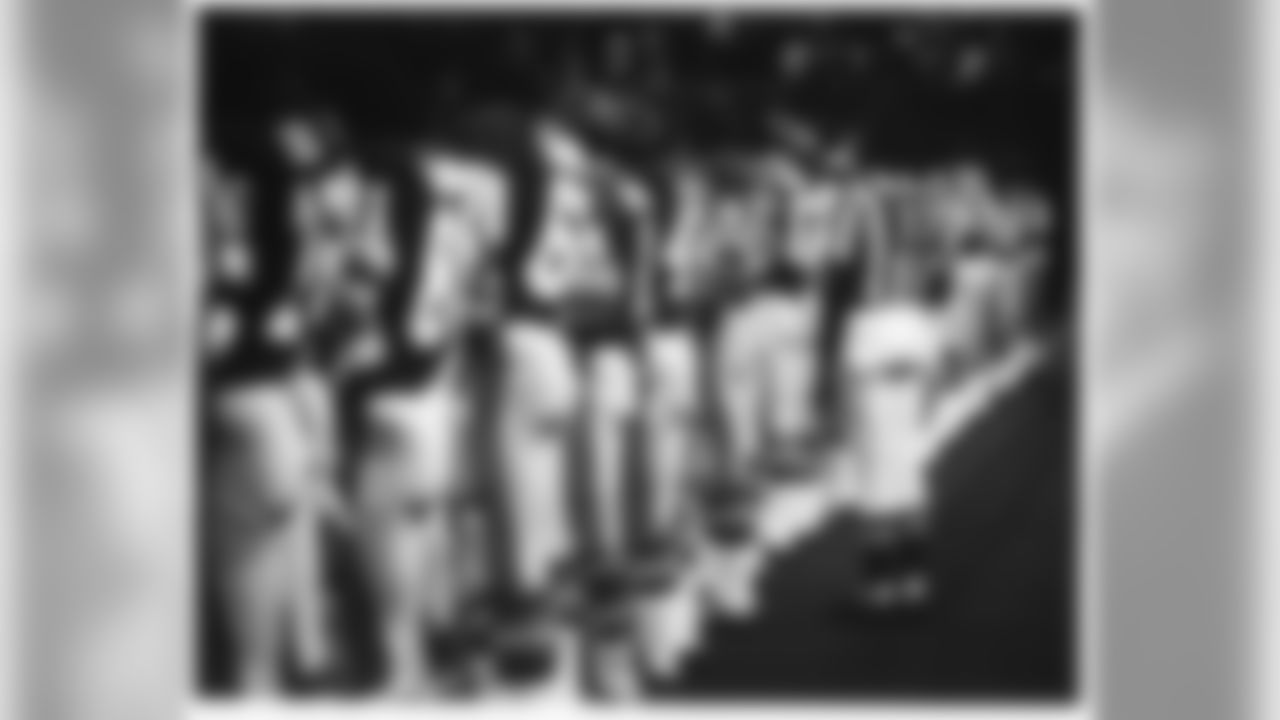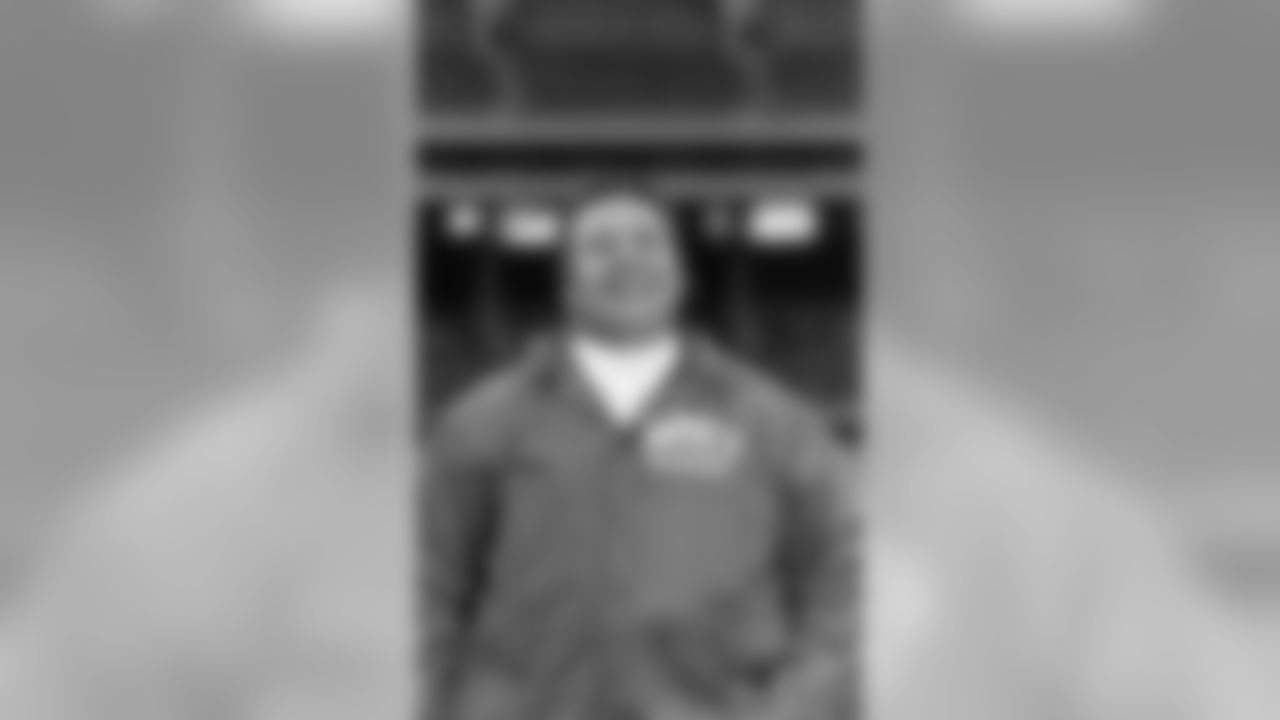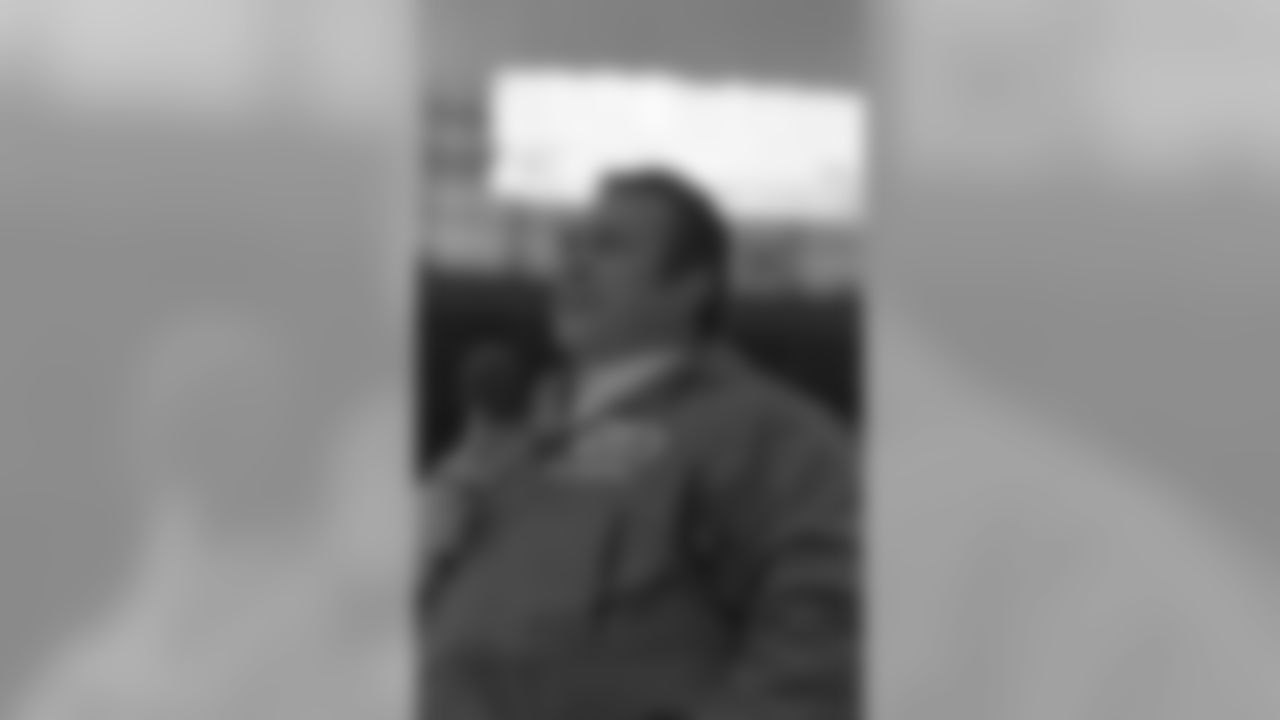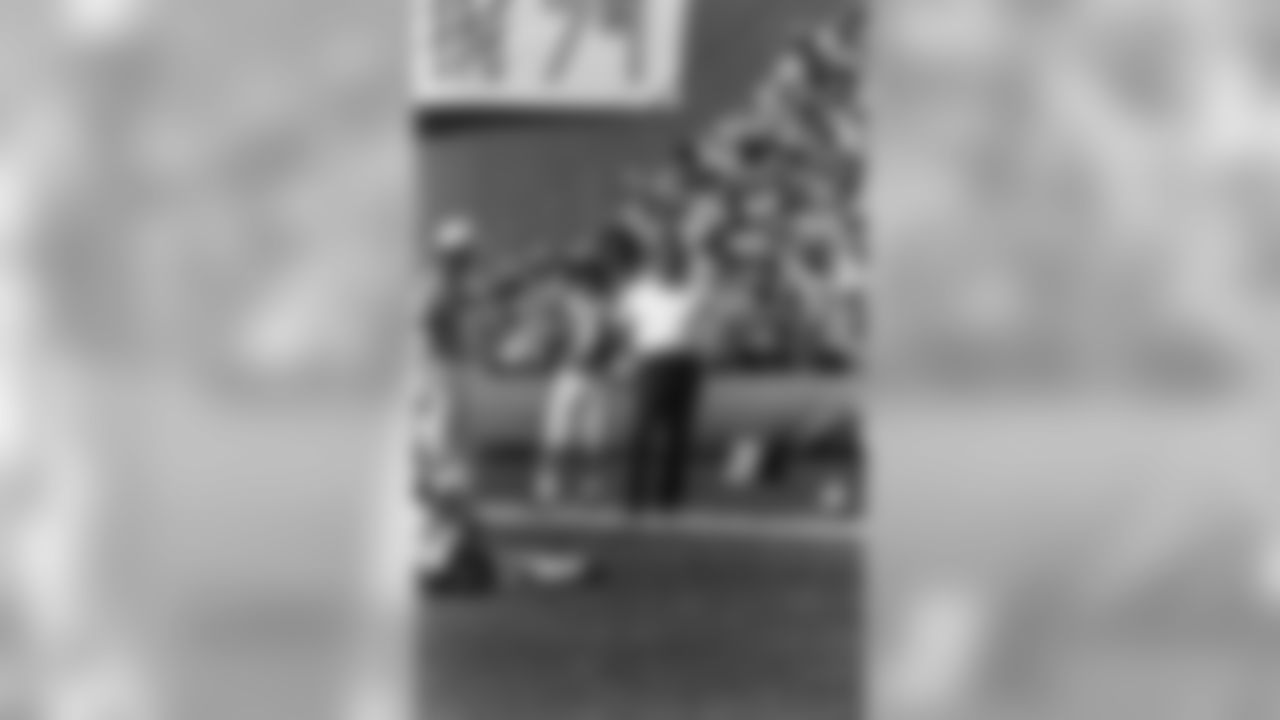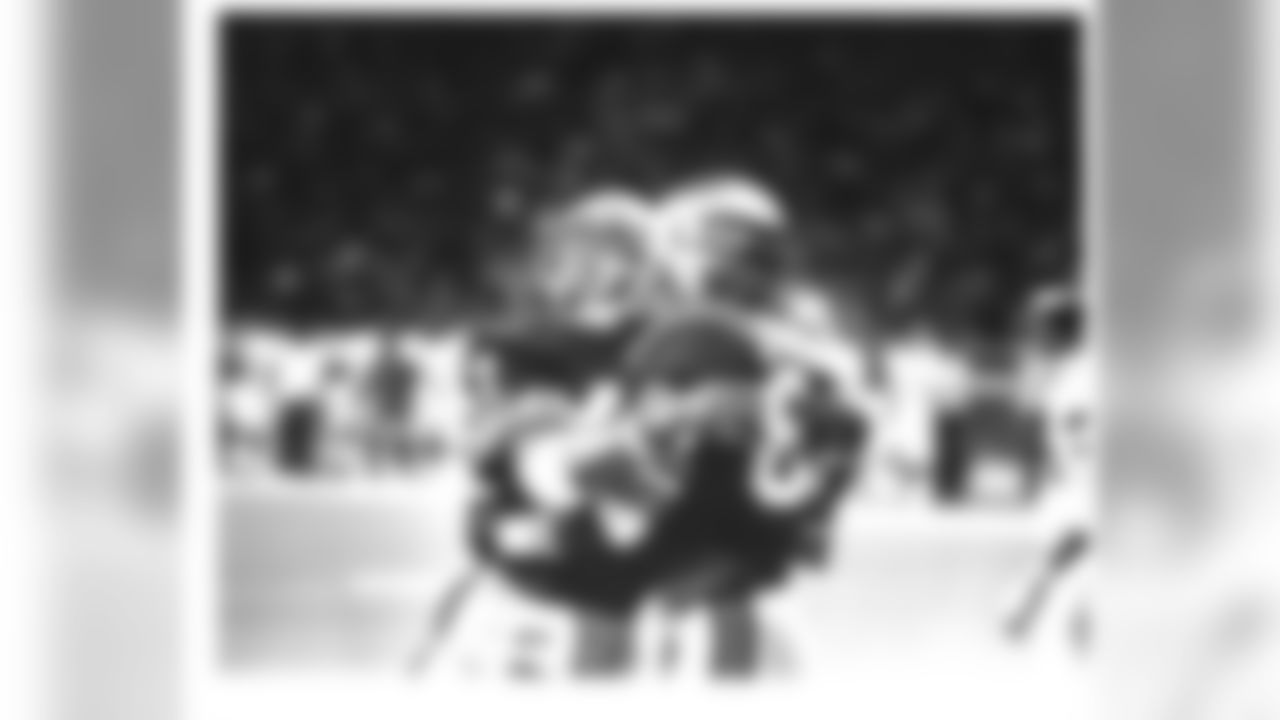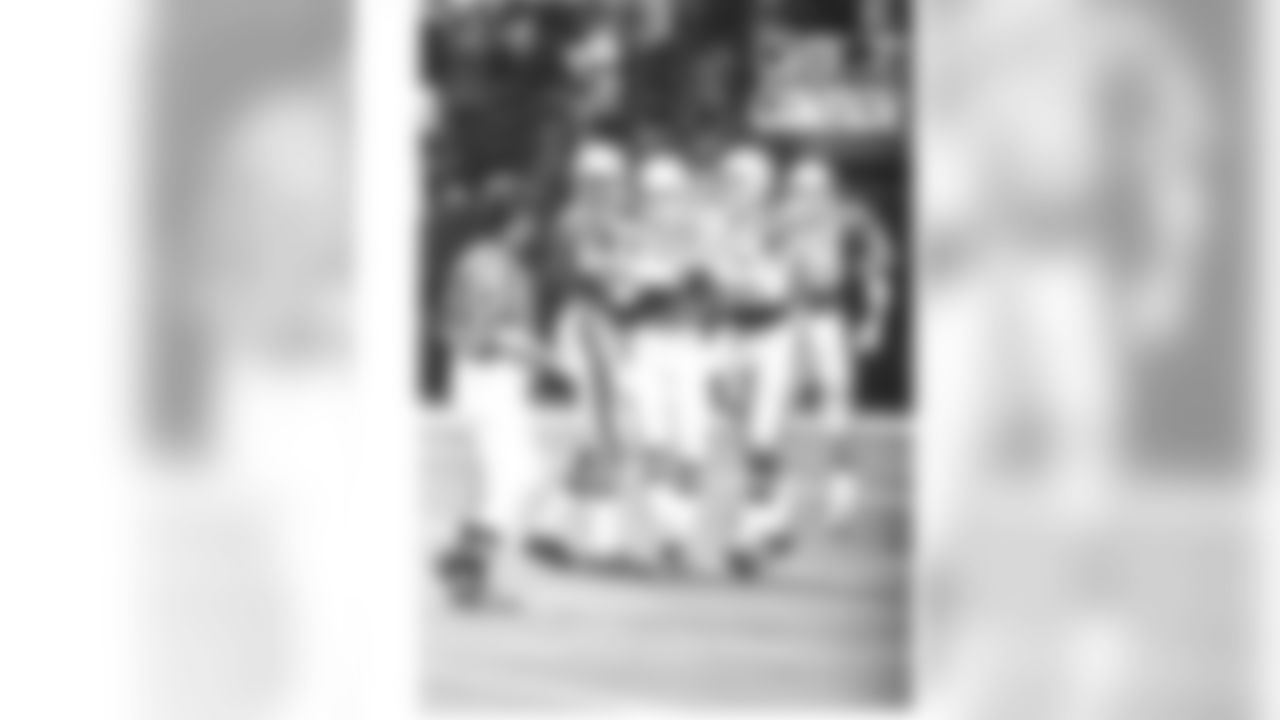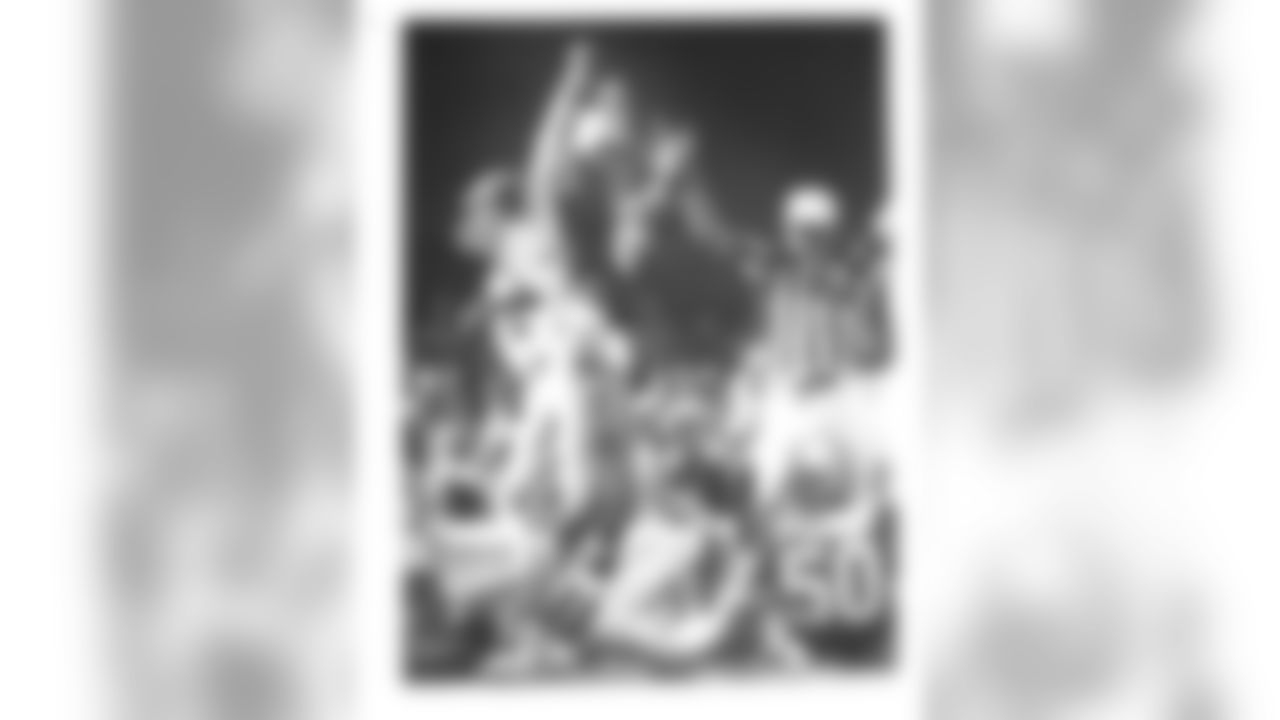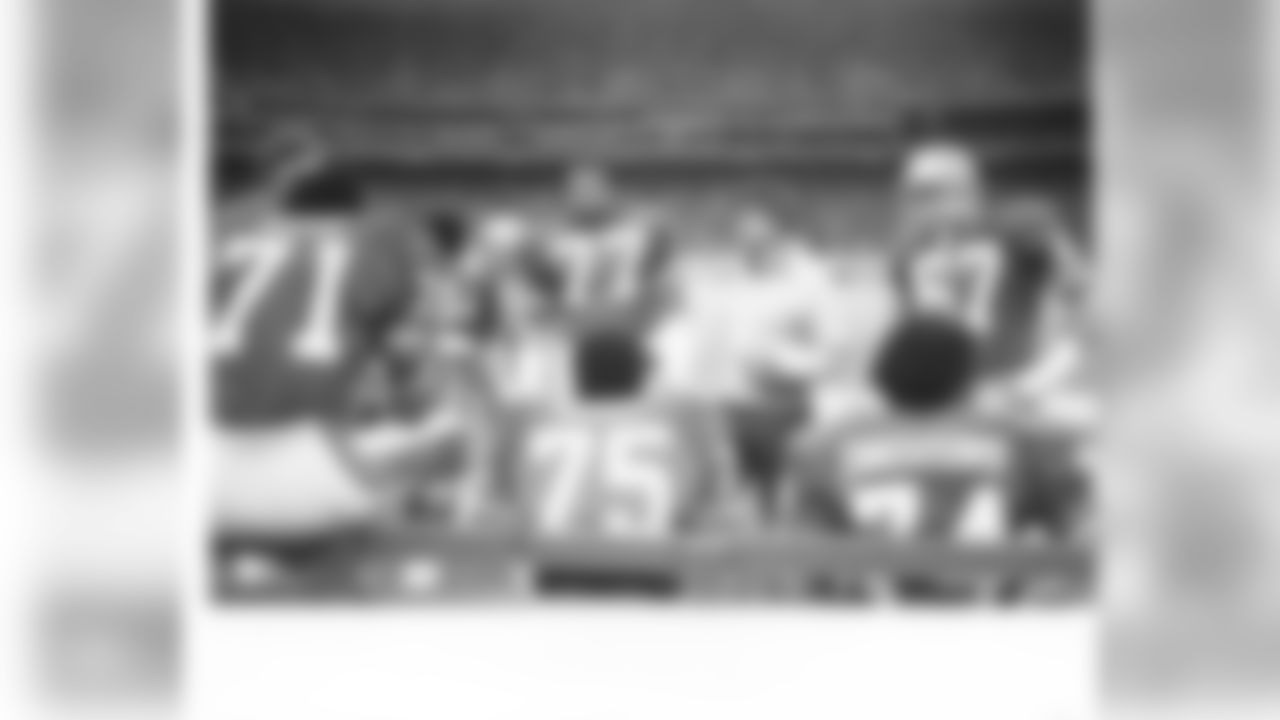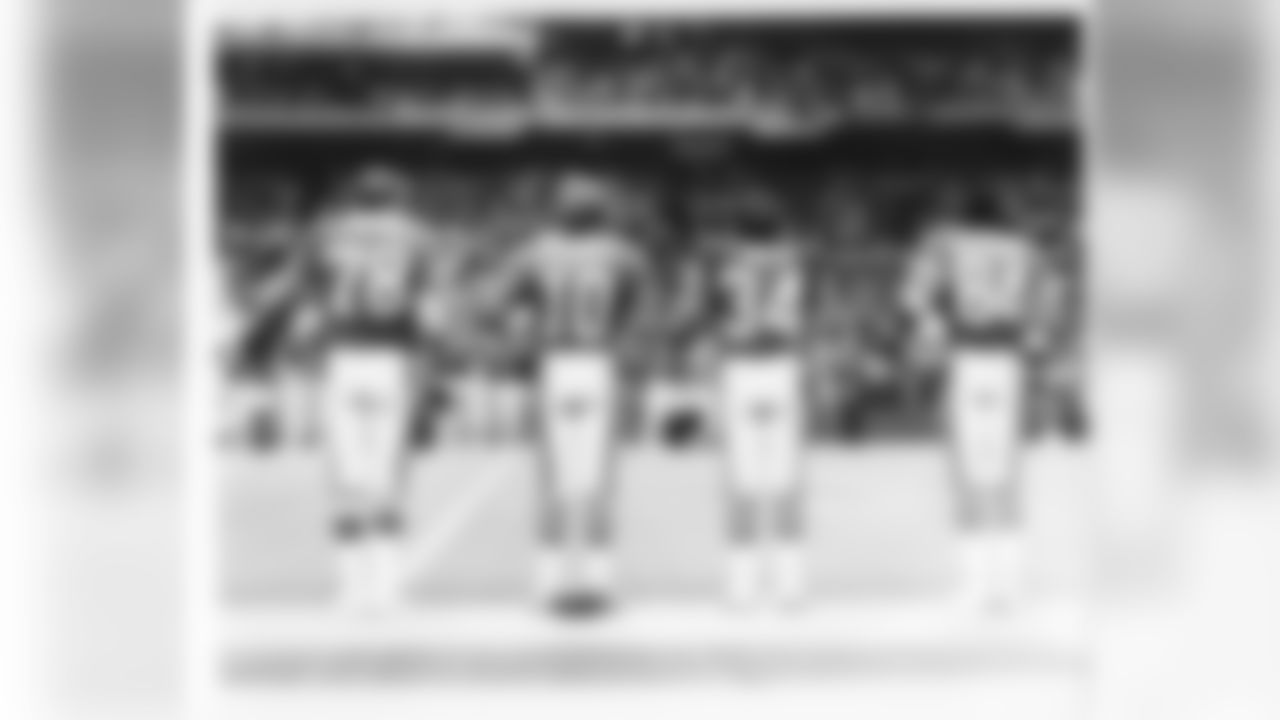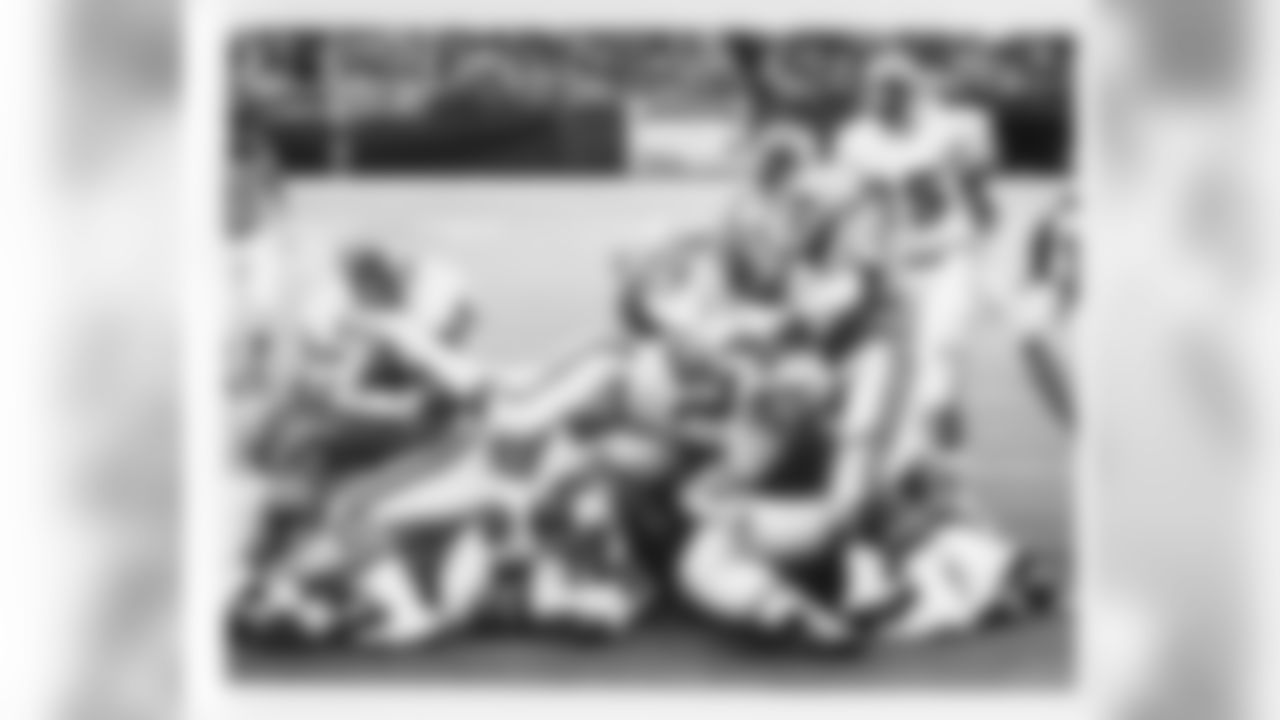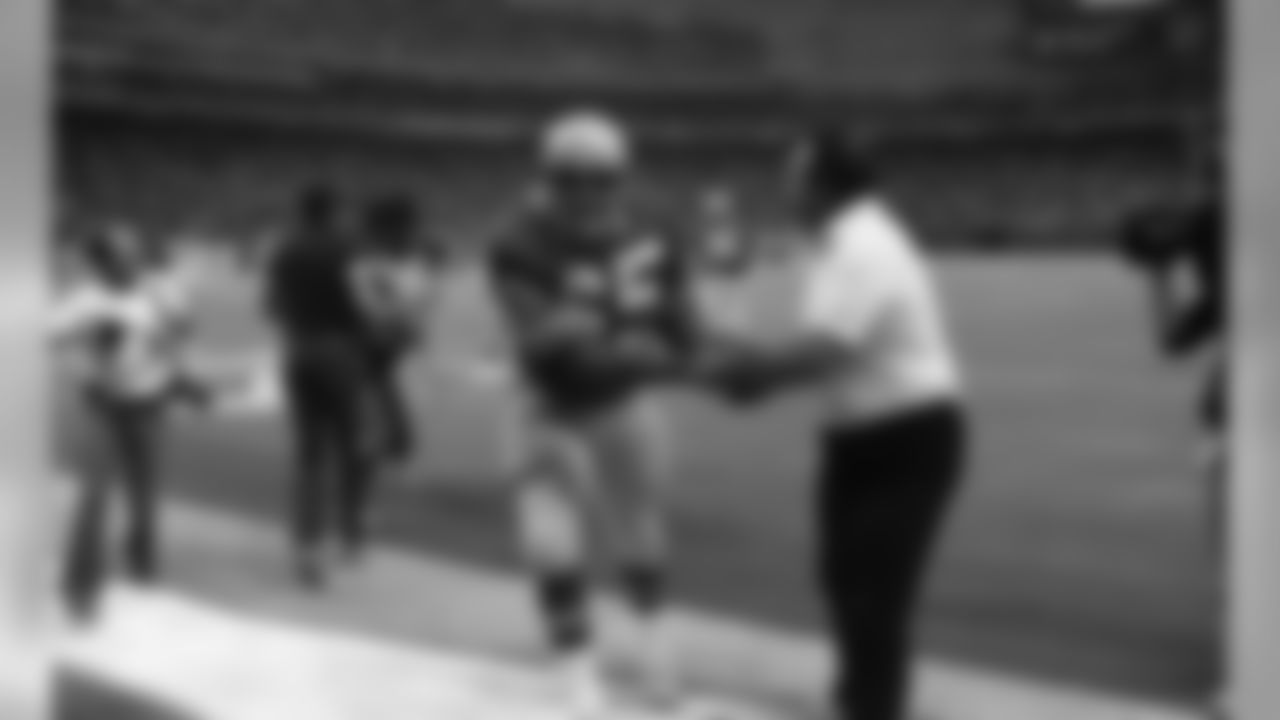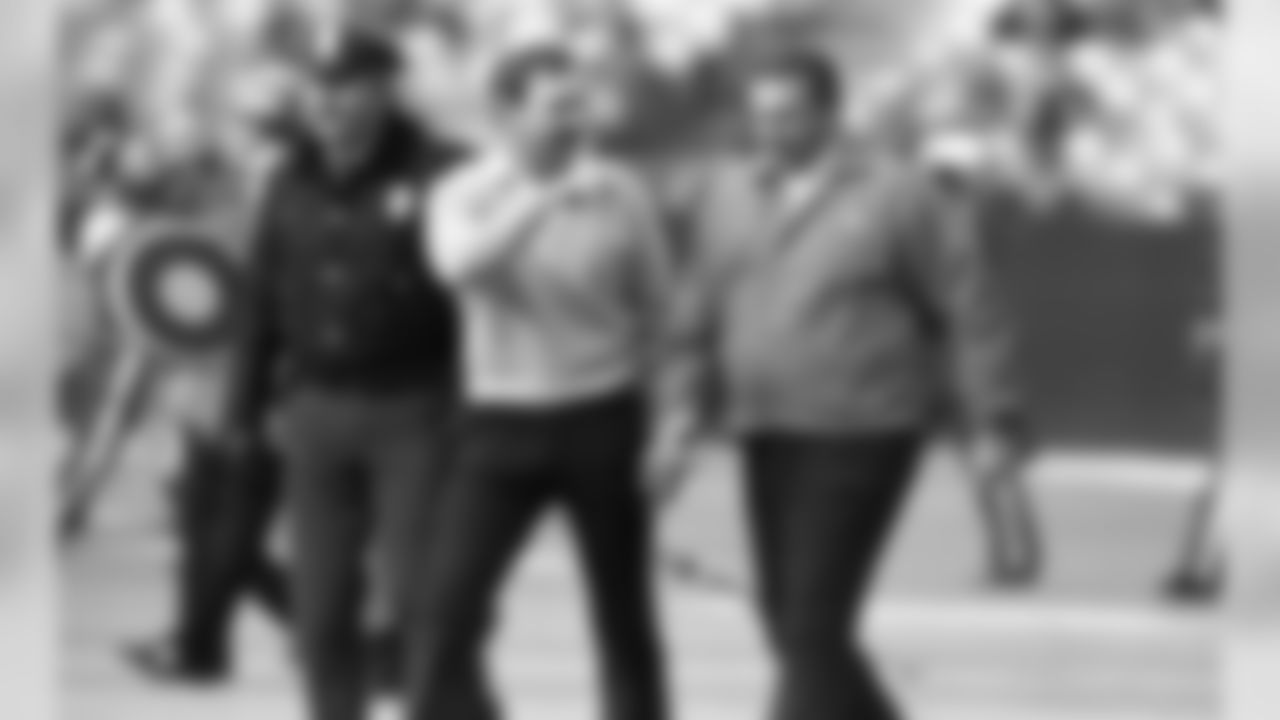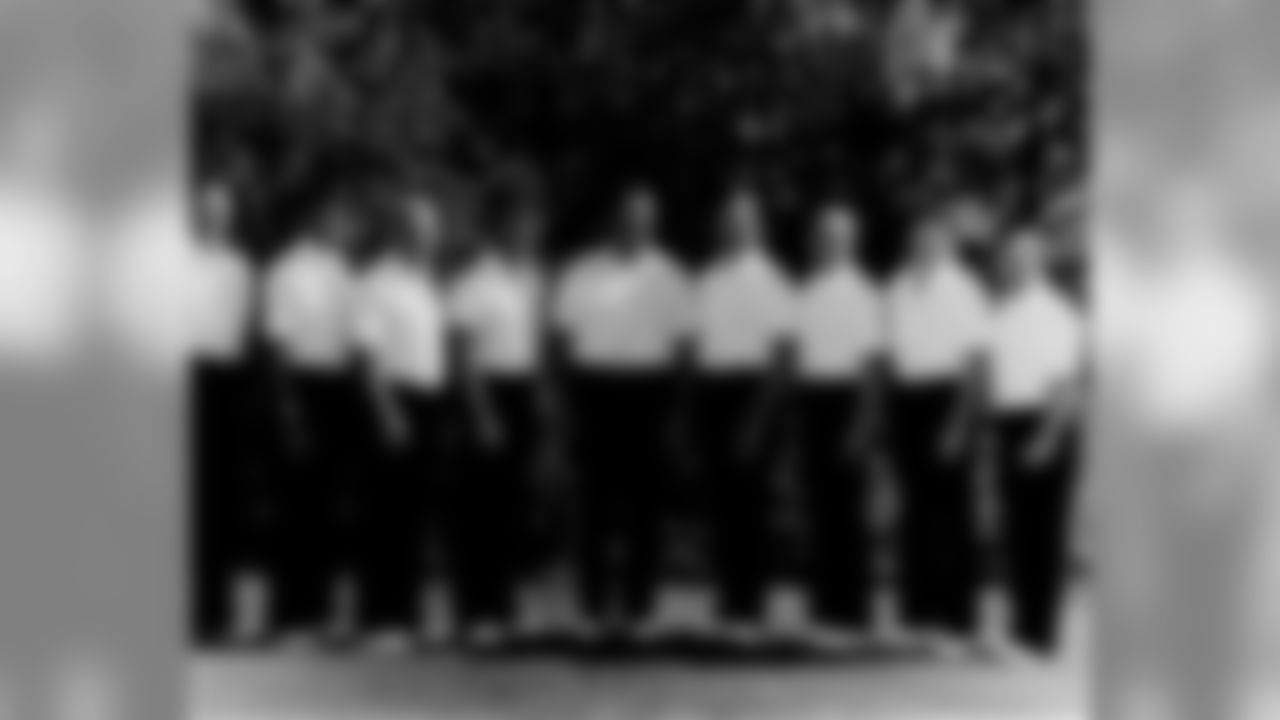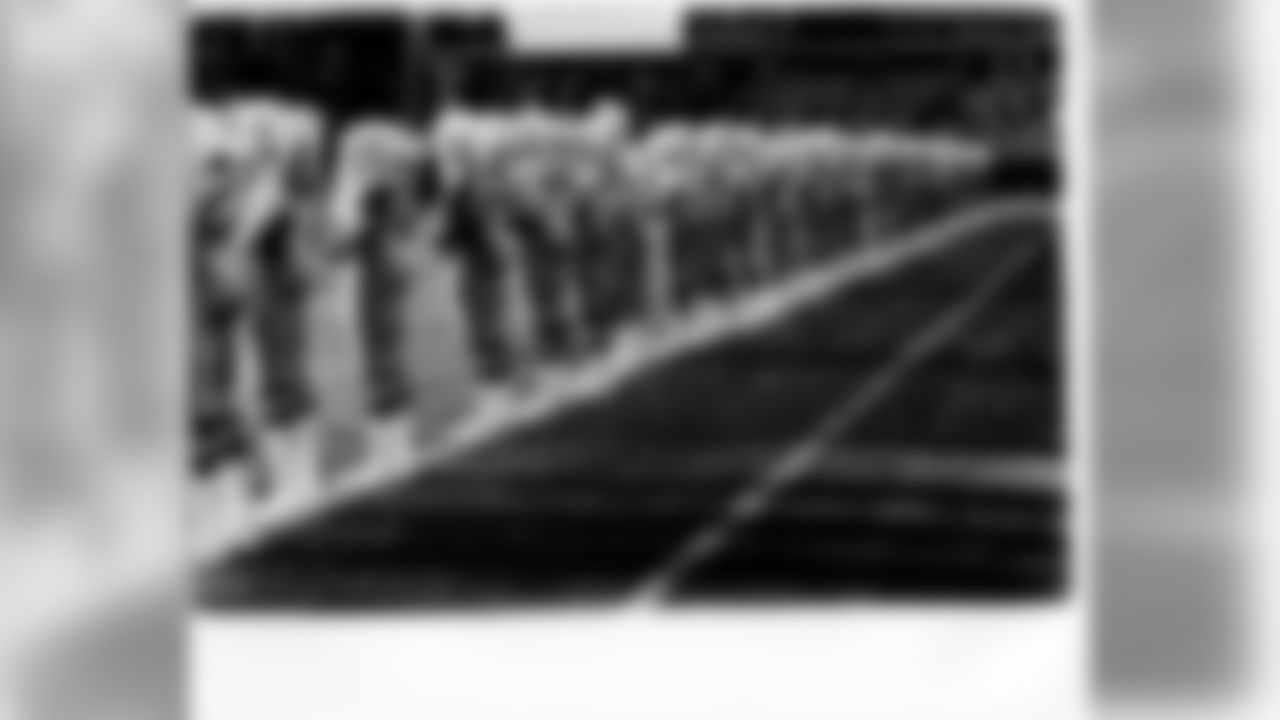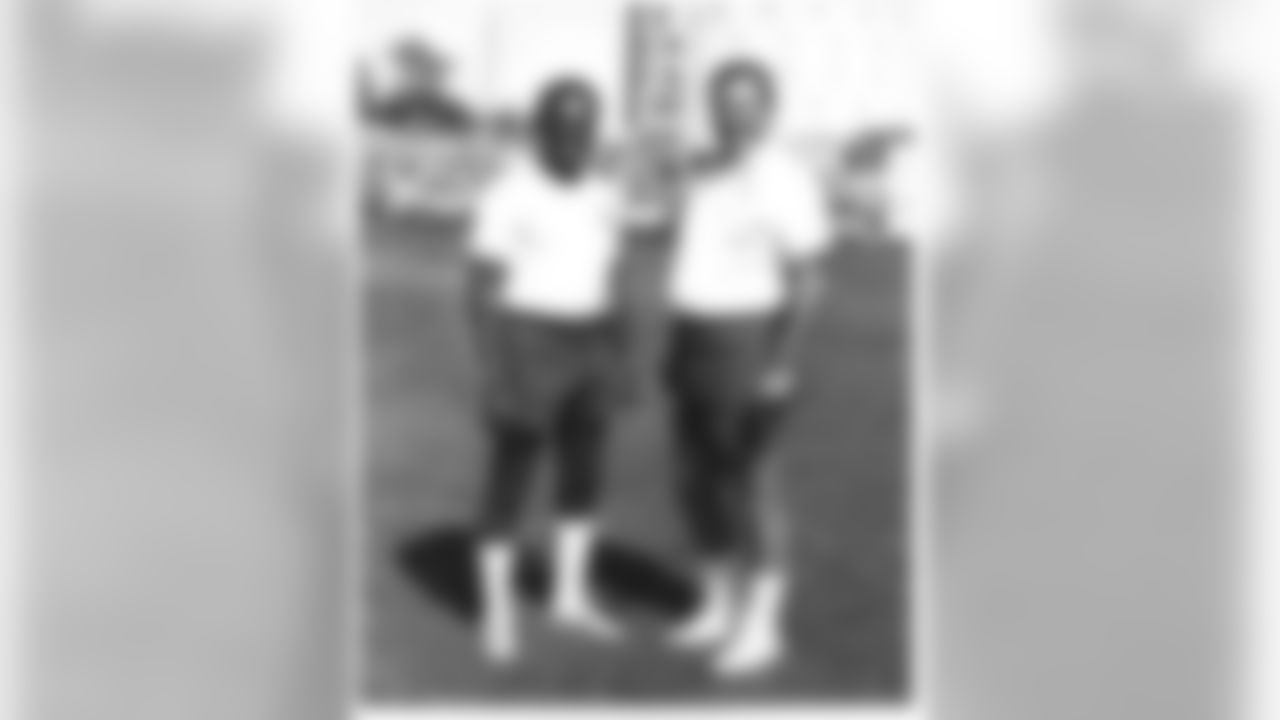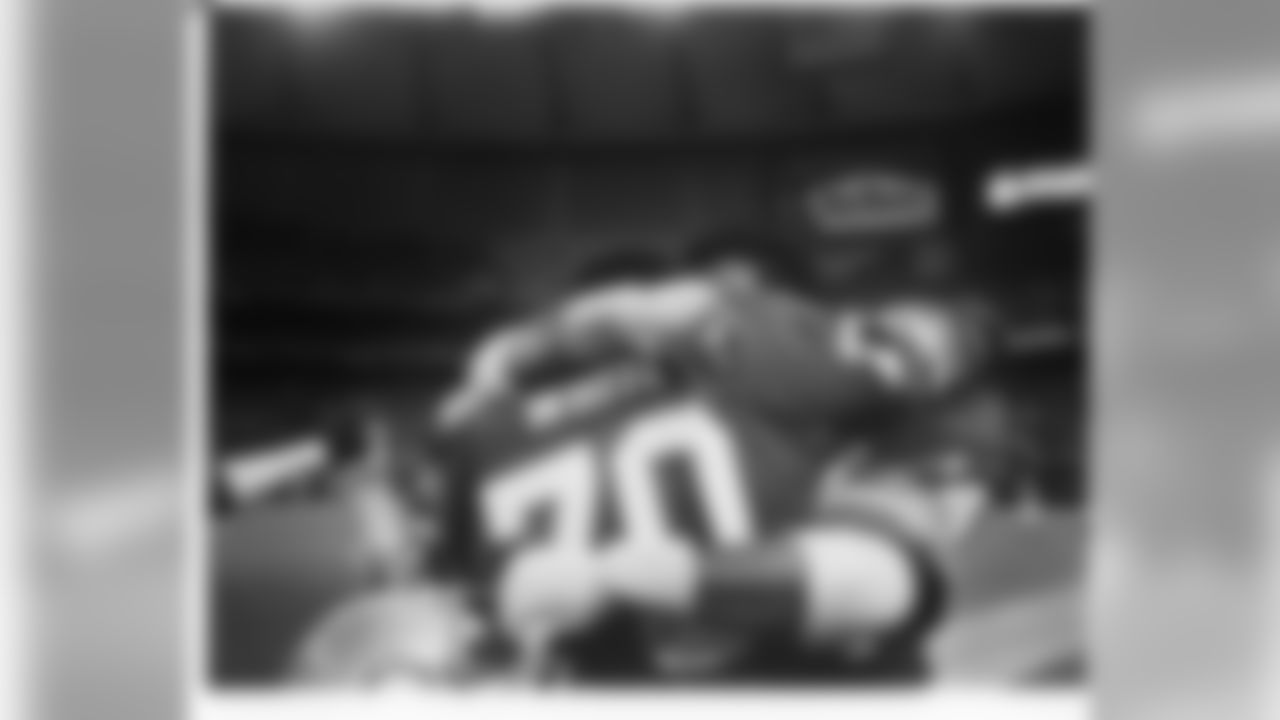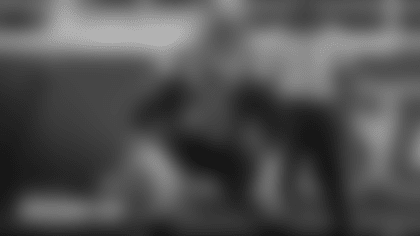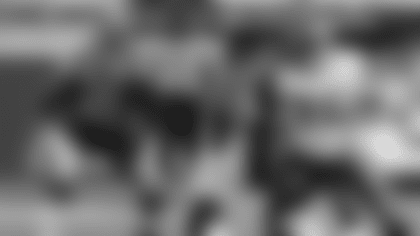It started with an email chain between offensive linemen. A group of former Seahawks who had played together during the franchise's earliest years had kept in touch over the past four decades, and recently they had discussed a get together in the Seattle area. River rafting was discussed, as was golf, fishing and hunting.
But as emails went back and forth, the idea grew, and after working with Sandy Gregory, the Seahawks' managing director of community outreach and the last original Seahawks employee still working for the team, what started as an offensive-line reunion turned into something much bigger.
When the Seahawks host the Miami Dolphins Sunday, more than 60 former players and coaches from the earliest days of the franchise are expected to be in attendance as the team celebrates the "Patera Era" teams led by Jack Patera, the first head coach in franchise history who led the team from 1976 until he was fired early in the 1982 season. The big names that even casual fans know such as Steve Largent, Jim Zorn, Dave Krieg and Jacob Green will be there, but so too will some players who were only in Seattle for a year or two, but who are still important parts of franchise history as members of the inaugural era of Seahawks football.
In addition to attending Sunday's opener, where they will be honored at halftime, the players coming for the Patera Era reunion will also attend Saturday's walk-through practice and enjoy a barbeque afterwards. Some players will also get together for golf on Friday and other informal gatherings throughout the weekend. It's a much larger-scale reunion than then one envisioned by former offensive linemen like Steve August, Tom Lynch and Nick Bebout when they traded emails in recent years, but it's something they're all looking forward to.
"It's definitely bigger than we as our little group was thinking about, but it's a great way to recognize the beginning of this franchise," August said.
August, a first-round pick in 1977 who started 90 games for Seattle at right tackle before being traded in 1984, liked the idea of a Patera Era celebration because celebrating the 40th anniversary of just the 1976 team would leave out a lot of players who were important parts of Seattle's early history. Howard Mudd, Seattle's offensive line coach from 1978-1982, used to take his linemen on preseason trips, including river rafting in Wenatchee, and a similar trip was discussed, but eventually the idea grew into something bigger. After a number of emails went back and forth, Bebout weighed in with a message.
"We need to do something," August recalled Bebout writing to the group. "We're not getting any younger, and some of those guys haven't been back there for 30, almost 40 years."
The weekend will give fans a chance to connect with the team's history, but more importantly, it will give old friends a chance to reminisce and catch up after years, and in some cases, decades apart.
"It'll be good to catch up with all those guys and tell old stories," said Bebout, an offensive tackle who played in Seattle from 1976-1979. "The older we get, the better we were, so the stories will be enhanced I'm sure."
Over the years, the Seahawks have celebrated important teams and players in their history, be it Ring of Honor members, Hall of Famers, or the 1983 team that was the first to make the playoffs. But this celebration will be different because, despite some memorable wins and two 9-7 seasons, the teams being honored weren't among the best teams in the NFL. What they were, however, were the teams that helped set the stage for those successful teams in the mid-1980s, and they were the teams that introduced a region to professional football and helped build one of the most passionate fanbases in the NFL.
"Those were guys who were instrumental in starting the franchise," said Steve Raible, a receiver from 1976-1981, and the longtime Seahawks radio playby-play man. "We weren't really good, but we were fun, and we were really close as a group, because you had to be.
"We've recognized the (1983) playoff team here, we've recognized the Hall of Famers, as well we should, but there was a group of guys who, if you don't have them, you don't have the start of the franchise."
In particular, those early teams built a special bond with fans that has only grown over the years.
"The pride really goes to the fans," said Lynch, a guard for the Seahawks from 1977-1980. "They were there at the beginning and stuck with us through thick and thin. There wasn't a lot of glory there early on, but I think we entertained. We did everything we could to win, we won some games we probably shouldn't have. We certainly entertained on offense, defense and special teams. You look at the stuff Jack was willing to do. (Kicker Efren) Herrera throwing touchdowns, onside kicks, fake FGs, fake punts. We would do everything to keep teams guessing… The biggest thing is just the city that supported the team. The 12th man means something there. It really is quite unique how much impact they have."
The first few years of Seahawks camp were a different experience for different players. For rookies who were drafted in those first couple of seasons, being part of an expansion team was all they knew, but for veterans like Bebout or tackle Norm Evans, it was a bit of a shock going from established NFL teams to one still trying to find its way.
"We didn't know anything else, and since it was new to most of us, we all grew up together," Raible said. "That was one of the reasons why so many of us stayed so close over the years, because we all did really grow up together."
For players, bonding over grueling training camps in Cheney was often times more memorable than wins or losses.
"It's not the games that necessarily stick in your head," Lynch said. "You go through hell in training camp. It's kind of like going to boot camp, you bond."
Lynch said players used to joke about "throwing a rope up there" into the sky to try to hook a cloud and pull it over the sun to provide shade. And to this day, the linemen laugh about Mudd's "excuse board" on which he actually wrote down every excuse one of his players threw at him, ranging from "my shoe was untied" to "the sun was in my eyes."
"It was like starting from scratch," said Bebout, who spent three seasons with Atlanta before coming to Seattle. "It was fun. The first year, there were tense situations, it was a little hectic. Nobody really expected us to do much, and we didn't. It was a lot of hard work trying to build something from nothing. But we were the basis for what you have there today. I had some great times, some great memories in my four years in Seattle. It was super fun.
"We started to gain some respectability (with 9-7 seasons in 1978 and '79), people around the league started to take us a little more seriously. We laid some pretty good groundwork for the teams that followed, and the Seahawks have had some great years since then."
As much as players look back fondly on their days playing under Patera decades later, it wasn't always easy at the time. Patera was as old-school as they come having worked in Minnesota under Bud Grant. (Yes, in a strange coincidence, the Seahawks' first head coach and their current one both worked under Grant in Minnesota.
Patera didn't allow water at practice, was demanding and he took a my-way-or-thehighway approach that players can appreciate a lot more now than they could at the time.
"It was us against Patera," Raible said. "We learned a lot later in life that he was a damn good coach and a really good guy, he was just tough on his players. That was the nature of things in those days. Two-a-days with pads, banging around every day… In those days it truly was, 'Coach says run through a wall, you run through a wall.' You didn't have a choice."
Added August: "We sort of laughed when we first got there, because Jack Patera was really old-school. We were probably the last team to have a strength and conditioning coach, we were probably the last team to allow water at practice. He was old-school, but he was a great coach. Jack was good for Seattle for those early years. It was fun to be a part of that inaugural Seahawks era."
Photos from the Seahawks' Jack Patera era, from the year 1976 through 1982.
